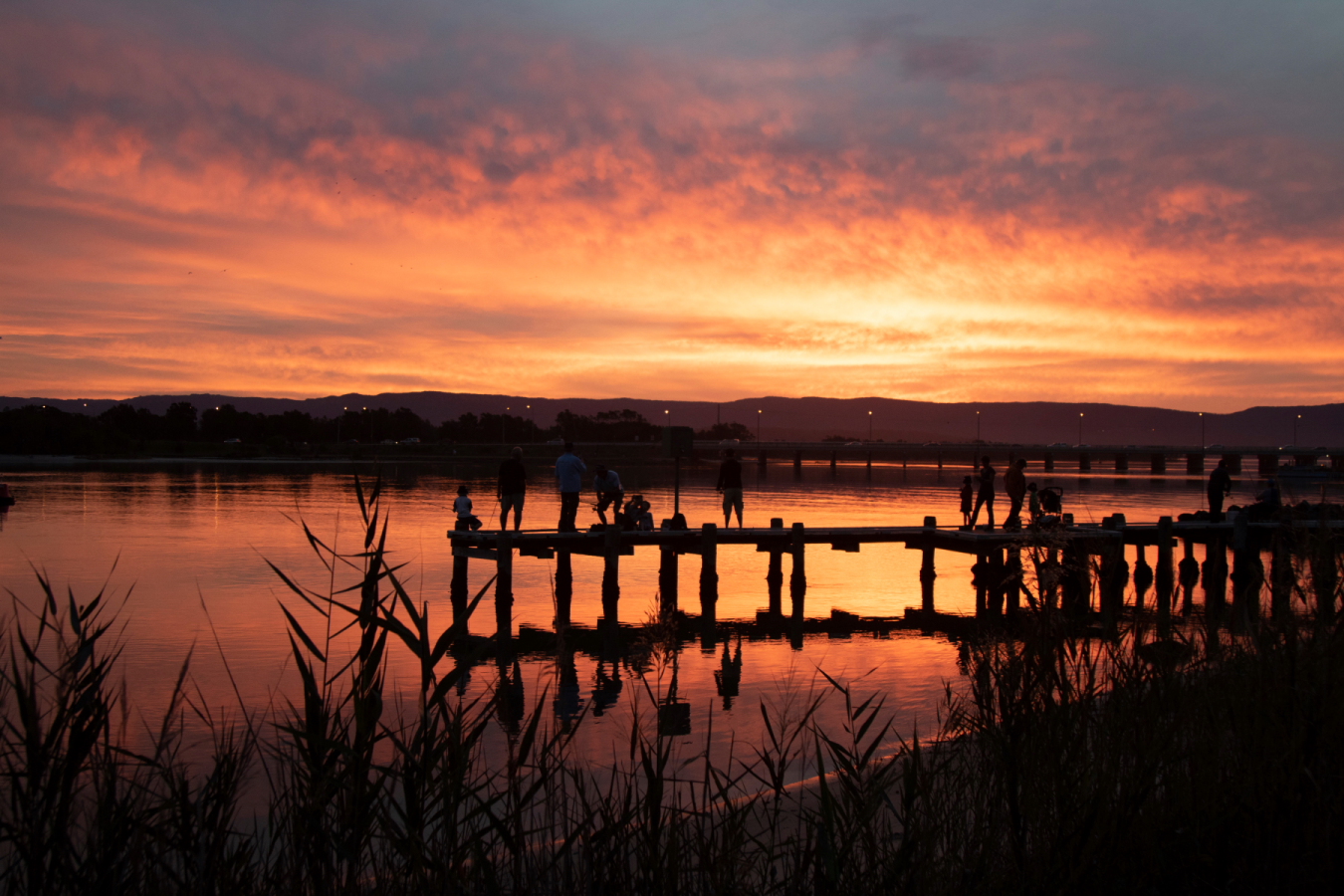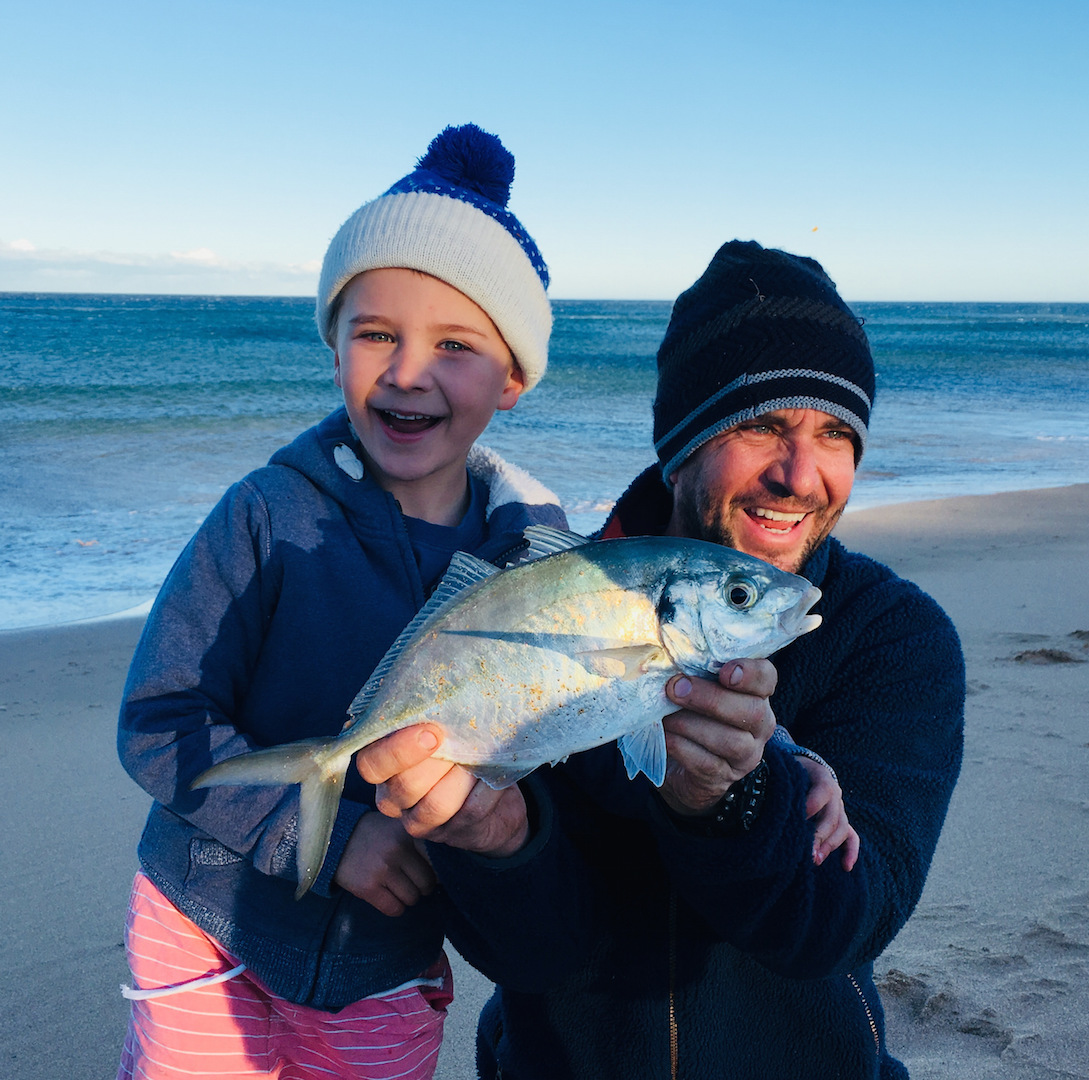
FISHING from the shore – be it from beaches, river banks, lake shores, rocks or man-made structures such as wharves, piers and breakwalls – is a low cost, fun way to enjoy a laidback session with family and friends.
Most keen anglers started their fishing careers spending countless hours down at the local wharf, beach or river bank. These safe and easy-to-access fishing locations provide the ideal base from which to develop the basic angling skills needed to set you up for a lifetime of fishing fun.
Even very experienced anglers continue to enjoy shore-based fishing. In coastal areas, locations such as beaches, rock platforms and wharves allow you to target a range of popular sport and table fish including bream, squid, luderick, flathead, mulloway, Australian salmon, tailor and even kingfish. In the freshwater scene, shore-based fishing provides opportunities to fish for trout, bass, Murray cod and yellowbelly in impoundments and rivers.
One of the key reasons shore-based fishing remains so popular is because it’s essentially pretty easy. You don’t need to spend too much time or effort to enjoy a session at the local beach, wharf or river bank – all you need is an outfit or two, some spare leader and terminal tackle, a cutting board, knife, pliers and braid scissors and a bucket or shoulder bag to carry your bait or lures.
This sort of no-frills fishing lends itself perfectly to a quick pre or post-work trip or a few hours on the weekend in between kids’ sport and other family duties.

The simple pleasures associated with fishing from a local wharf, beach or river bank are firmly cemented as part and parcel of the Aussie lifestyle. However, it’s important we all do our bit to ensure future generations continue to enjoy this sort of laidback fishing fun.
Here are a few simple responsible fishing rules to take on board next time you decide to wet a line at your favourite shore-based location:
- Don’t litter. Discarded line, empty bait packets, used cyalume sticks and tackle packaging is instantly recognisable as being fishing-related litter. The irresponsible few who leave this junk scattered around rock platforms, beaches, riverbanks or wharves do the rest of us a great disservice as their actions result in the entire fishing community getting a bad name in the eyes of the general public. Do the right thing and always dispose of all litter, bait and unwanted tackle responsibly. If you see rubbish left behind by irresponsible fishos, pick it up and dispose of it yourself.
- If you’re fishing from a wharf or pier, avoid using bollards or pylons as bait prep or fish cleaning stations. This causes mess, bad smells and damage to public infrastructure. Instead, take a cutting board (you can get these for a couple of bucks as any decent discount store) and use that for your bait prep or fish cleaning instead. A bucket on a rope allows you to do a quick wash down after you’ve finished.
- Fish responsibly and ethically. Always follow recreational fishing rules. If you take a fish for the table, dispatch it humanely and ice it down as soon as possible.
- Treat other users with respect and courtesy. In busy times like summer holidays, there’ll be plenty of other people wanting to enjoy time by the water. Fishing early and late is a good way to escape the crowds.
- Report illegal fishing to the Fishers Watch Phoneline on 1800 043 536. Information you report is logged and will be used and assessed by DPI Fisheries officers.
For more information: www.dpi.nsw.gov.au
















